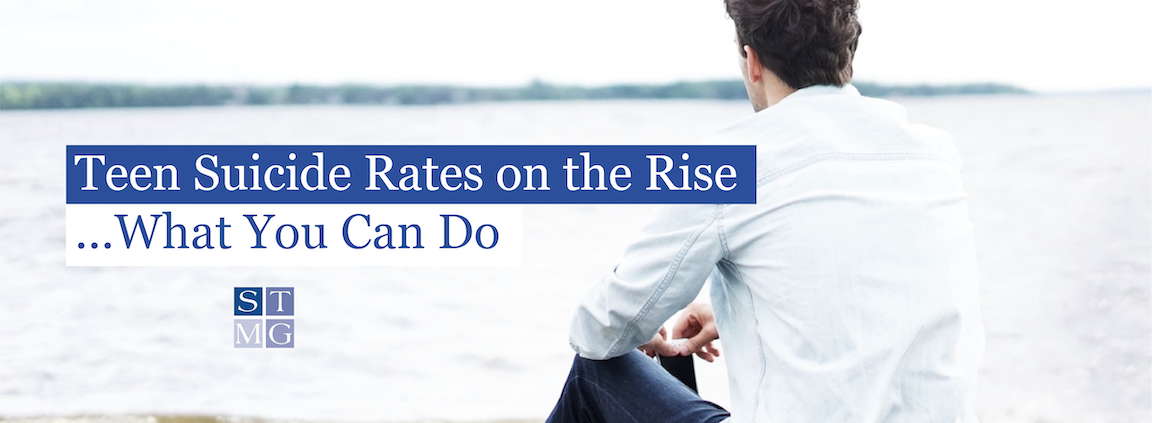Teen Suicide Rates on the Rise – What YOU Can Do
In June 2019, a new study published in the Journal of the American Medical Association reported that teen suicide rates reached the highest levels since 2000. Key statistics include:
- In 2017, there was a 21 percent increase from the previous year in boys ages 15-19 dying by suicide.
- Girls ages 15-19 experienced an eight percent increase in the same period.
- 5,016 of the 6,241 teenagers and young adults who died by suicide in 2017 were male.
- From 2008 to 2015, there were 115,856 emergency department visits for suicide ideation or attempts among young people.
Teen Suicide Rate on the Rise in Tennessee
Earlier this year, the Tennessee Suicide Prevention Network (TSPN) reported “a more than 24% increase in child suicide deaths from ages 10 to 17.” There were 41 deaths in 2016 and 51 deaths in 2017 – a significant increase from 13 deaths in 2005.
We’ve written in the past about the opioid crisis in Tennessee. In 2016, there were 1,186 opioid-related overdose deaths in Tennessee. That same year, however, there were 1,110 recorded suicide deaths in the state, reports TSPN. While the opioid crisis gets significant media attention (and rightfully so), it’s worth noting that our state’s suicide crisis is just as serious.
So, What Can You Do?
As parents, we wish our children all the health and happiness. Learning to recognize the warning signs of suicide is a critical way in which you can better protect your child.
Let’s talk prevention. After all, suicide is one of the leading causes of preventable death among teens.
Warning Signs of Teen Suicide
- Talking about suicide or death
- Preoccupation with death
- Loss of interest in school or activities
- Social withdrawal
- Impulsive or risky behavior
- Feeling hopeless
- Alcohol and/or drug abuse
- Depression
- Giving away prized possessions
Increased Risk Factors
Teens may be at an increased risk for suicide if they have these factors in their lives:
- Perfectionist tendency
- Learning disability
- Being LGBTQ
- Having low self-esteem
- Having few or no friends
- Depression
- Exposure to violence, abuse, or neglect
- History of self-harm
The Jason Foundation Parent Resource Program offers an excellent “Do’s and Don’ts” Resource for parents who have observed suicide risk factors in their child. Here is a brief summary of the foundation’s recommendations:
- Remain calm. Your calmness can create an environment that allows your child to more comfortably reach out and talk.
- Be prepared to talk. Communication is critical. Listen, ask questions, and don’t minimize or dismiss issues.
- Be prepared to act. Know how to remove dangerous items, call 911, and get help for your child.
- Don’t play the hero. You don’t have to do this alone. Get the support of others.
- Don’t promise confidentiality. And if you do, recognize that you may not be able to keep this promise. Breaking a promise is not as important as saving a life.
- Don’t think: “Not my child.” Suicide doesn’t only happen to “dysfunctional families” or those with histories. This condition reaches beyond racial, economic, social and ethnic lines.
For 24/7 help, call The National Suicide Prevention Lifeline at +1 (800) 273-TALK(8255).
Help Is Available. See Your Family Doctor in Nashville.
Your family doctor at St. Thomas Medical Group’s Children & Adults Department is here to help, support, and treat you and your children. In some cases, teens may be more comfortable talking with a trusted medical professional about certain issues than with their friends or parents. To learn more about how we may be able to help – or to schedule an appointment – call +1 (615) 301-7040. You can also make an appointment online.



